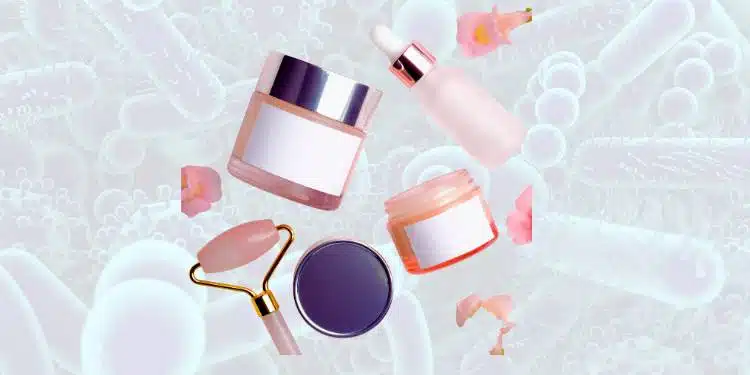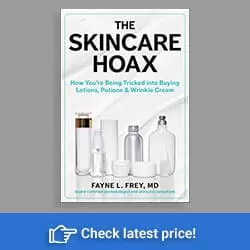The newest buzzword in skincare products is microbiome-friendly. Have you noticed all the labels on new formulations on the shelves making this claim? Microbiome-friendly skincare products are often formulated with one of three categories of ingredients that are touted to promote a healthy microbiome, prebiotics, probiotics or postbiotics.
This topic is one my patients ask about frequently with great interest. Is all the enthusiasm warranted? Does ample scientific proof of benefit exist or is it just hype? Are microbiome-friendly claims just another way to market more products?
What is the skin microbiome?
Our skin serves as an incredible protective layer to the outside world. This barrier prevents the invasion of foreign pathogens and is home to an invisible ecosystem of microorganisms. The microbiome is the genetic material of all the microorganisms that live on our bodies. Over a trillion microbes, bacteria, fungi, protozoa and viruses reside on the skin of every one of us.
The community of microorganisms living on our body surface is called the microbiota. Some of these microorganisms, called commensal organisms, are not harmful. Pathogens, on the other hand, are organisms that can cause issues.
The two terms, microbiome and microbiota, are often used interchangeably today despite the subtle differences.
Skincare claims regarding the microbiome
First and foremost, the human microbiome is not yet universally defined. In addition, no two people have the exact same microbiome. It varies from person to person based on age, sex, and season. It even varies by body location on any given individual. So, the microbiome on the forehead is different from the microbiome in that same individual’s nose crease, which is different from the microbiome on their feet. Also important to note, it is very difficult to permanently change the microbiome. Currently, there is no proof that even antibacterial cleansers permanently change the microbiome environment.
Secondly, making a drug claim for a cosmetic is illegal. In other words, manufacturers cannot legally say their product changes the structure or function of the skin. To make this type of claim would classify the product as a drug and therefore necessitate that product getting pre-market approval from the Food & Drug Administration (FDA). In an attempt to comply with these laws, manufacturers might use the phrase microbiome-friendly on the label instead. This wording implies the use of this cosmetic does not alter the microbiome, an easy thing to prove since we know even cleansers don’t permanently change the microbiome. At best, they may temporarily alter it after washing, but the microbiome quickly reestablishes itself.
Prebiotics vs Probiotics vs Postbiotics
Skincare product labels using the words prebiotic, probiotic or postbiotic are found everywhere too. Using these words imply benefit to the microbiome. But what does it all mean?
What are prebiotics?
Prebiotics are plant-based sugars and oils that manufacturers may add to skincare formulations. Think of them as food or fertilizer for the microbiome. Prebiotics supposedly promote only the growth of the beneficial organisms while preventing harmful bacteria from growing on the skin. Of course, no science exists that proves these very same compounds aren’t also enjoyed by unwanted pathogens.
It is not uncommon to see prebiotics marketed for oral consumption. These non-digestible sugars are found in grains like whole wheat and oats, and other fruits and vegetables like onions, garlic, and blueberries. While manufacturers market prebiotic supplements as beneficial food for the microbiome in the gut, unfortunately no science shows prebiotics taken orally have any benefit on the skin..
What are probiotics?
Probiotics are live microorganisms that may be formulated into creams or sprays for topical application. As yet, no research shows probiotics are effective when applied to the skin, especially due to the individual variation of the microbiome. T. Lactobacillus, the common bacteria found in yogurt, is a common bacteria that formulators may incorporate into a skincare cream. Unfortunately, refrigeration is necessary for true probiotic skin products as live organisms like lactobacillus cannot survive at room temperature. In addition, skincare products contain preservatives, ingredients added to the formulation to destroy living microorganisms to prevent contamination. Finding a true probiotic containing skincare cream on the shelves is highly unlikely.
What are postbiotics?
Postbiotics are compounds like small protein and sugar molecules, enzymes, and acids that are by-products of fermenting bacteria. The use of postbiotics in skincare is very common. Lactic acid, a well known postbiotic, is an ingredient that has been added to moisturizers for decades to aid in the shedding of dead cells from the skin surface.
The bottom line
Although some evidence exists that the microbiome affects skin disease and even systemic disease, research on the skin microbiome is still in its infancy. While postbiotics have been used successfully in over-the-counter skincare products for many years, there are unfortunately no proven benefits to date for applying cosmetic products claiming to contain pre and probiotics. As is often the case, marketing is way ahead of science!
ABOUT THE AUTHOR
 Fayne Frey, M.D., is a board-certified clinical and surgical dermatologist practicing in West Nyack, New York, where she specializes in the diagnosis and treatment of skin cancer. She is a nationally recognized expert in the effectiveness and formulation of over-the-counter skincare products, and, as a speaker, has captivated audiences with her wry observations regarding the skincare industry. She has consulted for numerous media outlets, including NBC, USA Today, and, the Huffington Post, and has shared her expertise on both cable and major TV outlets. Dr. Frey is the Founder of FryFace.com, an educational skincare information and product selection service website that clarifies and simplifies the overwhelming choice of effective, safe and affordable products encountered in the skincare aisles. She is also the author of THE SKINCARE HOAX: How You’re Being Tricked into Buying Lotions, Potions & Wrinkle Cream
Fayne Frey, M.D., is a board-certified clinical and surgical dermatologist practicing in West Nyack, New York, where she specializes in the diagnosis and treatment of skin cancer. She is a nationally recognized expert in the effectiveness and formulation of over-the-counter skincare products, and, as a speaker, has captivated audiences with her wry observations regarding the skincare industry. She has consulted for numerous media outlets, including NBC, USA Today, and, the Huffington Post, and has shared her expertise on both cable and major TV outlets. Dr. Frey is the Founder of FryFace.com, an educational skincare information and product selection service website that clarifies and simplifies the overwhelming choice of effective, safe and affordable products encountered in the skincare aisles. She is also the author of THE SKINCARE HOAX: How You’re Being Tricked into Buying Lotions, Potions & Wrinkle Cream
Dr. Frey is a fellow of both the American Academy of Dermatology and the American Society for Dermatologic Surgery.











